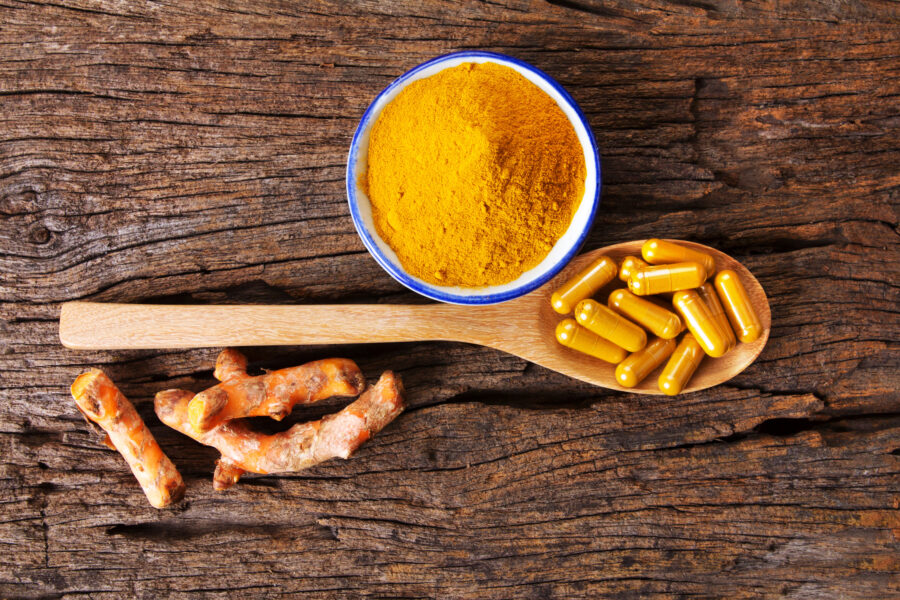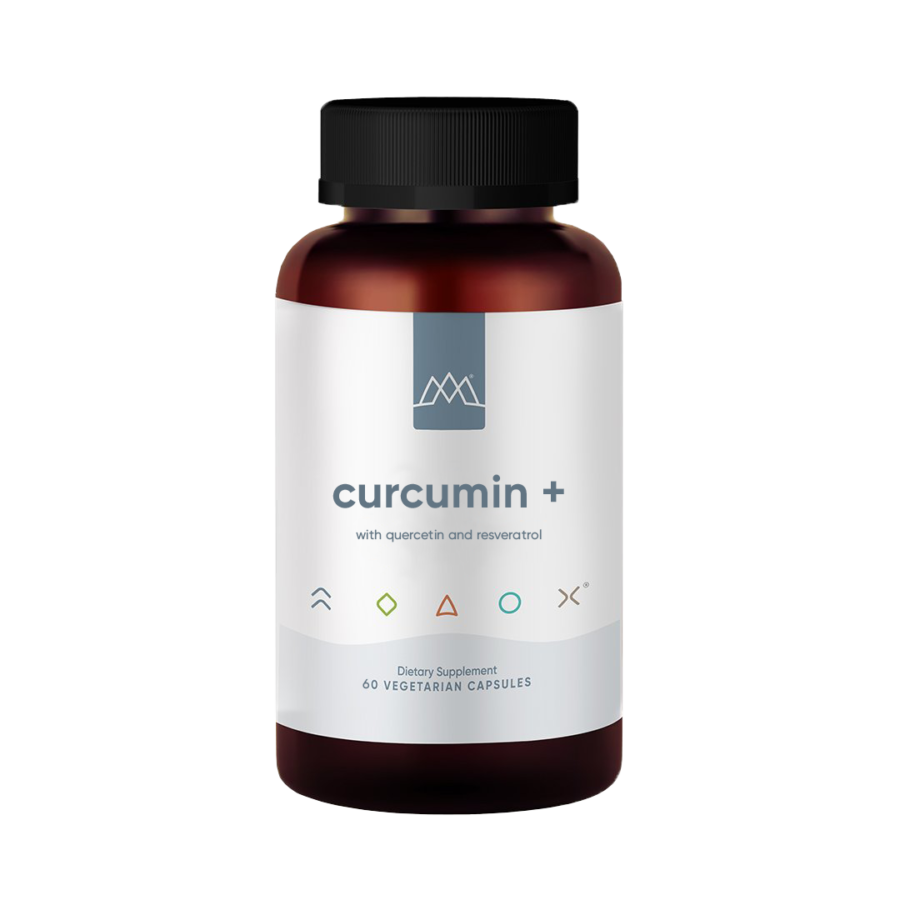If you’ve been leading your own personal health journey, you’ve likely heard about the herb turmeric, and its active component, curcumin. That’s because this flowering plant has been making headlines for its ability to normalize or improve outcomes for an amazing number of health problems. Originally used in Traditional Chinese Medicine, as well as Ayurvedic medicine, over 2,000 years ago, yet today, we have a body of research that supports taking curcumin for inflammation, immune health, joint function and mobility, liver and gut health plus cardiovascular function.
How curcumin works
The primary benefit of curcumin is its ability to maintain a healthy inflammatory response. The immune system uses the process of inflammation to defend the body from harmful agents, such as bacteria, viruses, and oxidation.
Yet, this describes a healthy response to inflammation
However, in some diseases, like arthritis, your immune system triggers inflammation when there are no invaders to fight off. In these diseases (called autoimmune diseases), your immune system acts as if regular tissues are infected or somehow causing damage when they aren’t. The good news is that researchers have shown that by inhibiting two key enzymes in the body, namely COX-1 and COX-2, taking supplemental curcumin can reduce this unhealthy inflammatory response.
Subsequently, this action helps reduce the production of inflammation the same way over-the-counter pain medicines, Advil, Tylenol, Ibuprofen, and Naproxen do. The difference is curcumin does this naturally, thus making it a viable alternative for anyone experiencing normal aches and bodily discomforts of life.
Getting the greatest benefits from supplemental curcumin
Making curcumin better
One proven way to improve absorption is achieved by combining it with quercetin and resveratrol to increase each ingredient’s uptake from the stomach. In fact, a landmark study published in the prestigious Journal of Restorative Medicine showed that the combination of curcumin plus quercetin and resveratrol increased absorption over 300% overtaking curcumin alone[1]. This combination of ingredients was further validated in a 2020 study of key polyphenols (a class of potent health-promoting nutrients found in fruits and vegetables) that noted the combination of curcumin plus quercetin and resveratrol are clear winners in the fight against chronic inflammation[2].
 If this sounds too good to be true, it isn’t.
If this sounds too good to be true, it isn’t.
What it means is that the combination of curcumin, quercetin, and resveratrol, such as in MaxLivings potent Curcumin +, should be considered as a must-have natural supplement for those of us who want to ward off premature illness and maintain lifelong health and vitality.
What is Curcumin +
Curcumin + is a research-based anti-inflammatory and antioxidant formula designed for optimal absorption. Curcumin + is specifically designed to harness the power of natural fruit and vegetable polyphenols by combining 360mg of quercetin with 360mg of resveratrol and 200mg of curcumin. Taking two capsules daily provides the same potent antioxidant and anti-inflammatory protection as eating one teaspoon of fresh ground turmeric, two-thirds cup of fresh organic blueberries, and fourteen ounces of sweet potato each day with no sugars, carbs, or calories.
The benefits of Curcumin +
About the Author
 Zach Zovath graduated with a Bachelor’s degree in Exceptional Education from the University of Central Florida. He continued on to receive his Master’s degree from the College of Education and Human Performance at the University of Central Florida. He is a master-level personal trainer, coach, and health consultant. In addition, his specializations include corrective exercise, performance enhancement, prenatal/postpartum core stability, and exercise therapy. As a result of his education and experience in the health and fitness industry, he has developed fast and effective exercise programs for health care facilities.
Zach Zovath graduated with a Bachelor’s degree in Exceptional Education from the University of Central Florida. He continued on to receive his Master’s degree from the College of Education and Human Performance at the University of Central Florida. He is a master-level personal trainer, coach, and health consultant. In addition, his specializations include corrective exercise, performance enhancement, prenatal/postpartum core stability, and exercise therapy. As a result of his education and experience in the health and fitness industry, he has developed fast and effective exercise programs for health care facilities.
References
[1] Lund, K. C., & Pantuso, T. (2014). Combination Effects of Quercetin, Resveratrol and Curcumin on In Vitro Intestinal Absorption. Journal of Restorative Medicine, 3(1). https://doi.org/10.14200/jrm.2014.3.0108
[2] Cione, E., Torre, C. La, Cannataro, R., Caroleo, M. C., Plastina, P., & Gallelli, L. (2020). Quercetin, epigallocatechin gallate, curcumin, and resveratrol: From dietary sources to human MicroRNA modulation. Molecules. https://doi.org/10.3390/molecules25010063
[3] Cione, E., Torre, C. La, Cannataro, R., Caroleo, M. C., Plastina, P., & Gallelli, L. (2020). Quercetin, epigallocatechin gallate, curcumin, and resveratrol: From dietary sources to human MicroRNA modulation. In Molecules (Vol. 25, Issue 1). https://doi.org/10.3390/molecules25010063
[4] Kotha, R. R., & Luthria, D. L. (2019). Curcumin: Biological, pharmaceutical, nutraceutical, and analytical aspects. In Molecules (Vol. 24, Issue 16). https://doi.org/10.3390/molecules24162930
[5] Berman, A. Y., Motechin, R. A., Wiesenfeld, M. Y., & Holz, M. K. (2017). The therapeutic potential of resveratrol: a review of clinical trials. Npj Precision Oncology, 1(1). https://doi.org/10.1038/s41698-017-0038-6
[6] Li, Y., Yao, J., Han, C., Yang, J., Chaudhry, M. T., Wang, S., Liu, H., & Yin, Y. (2016). Quercetin, inflammation and immunity. In Nutrients (Vol. 8, Issue 3). https://doi.org/10.3390/nu8030167




